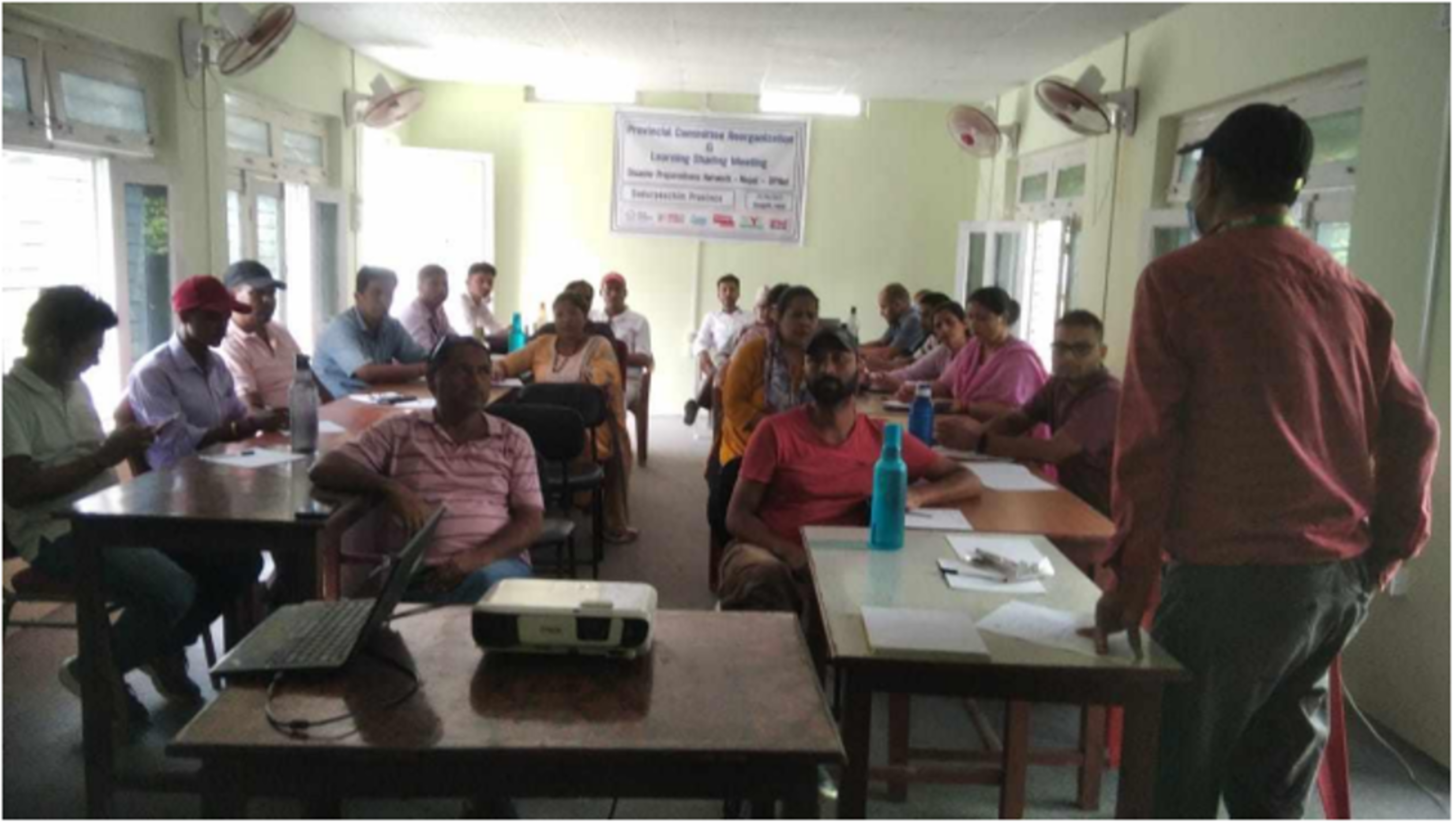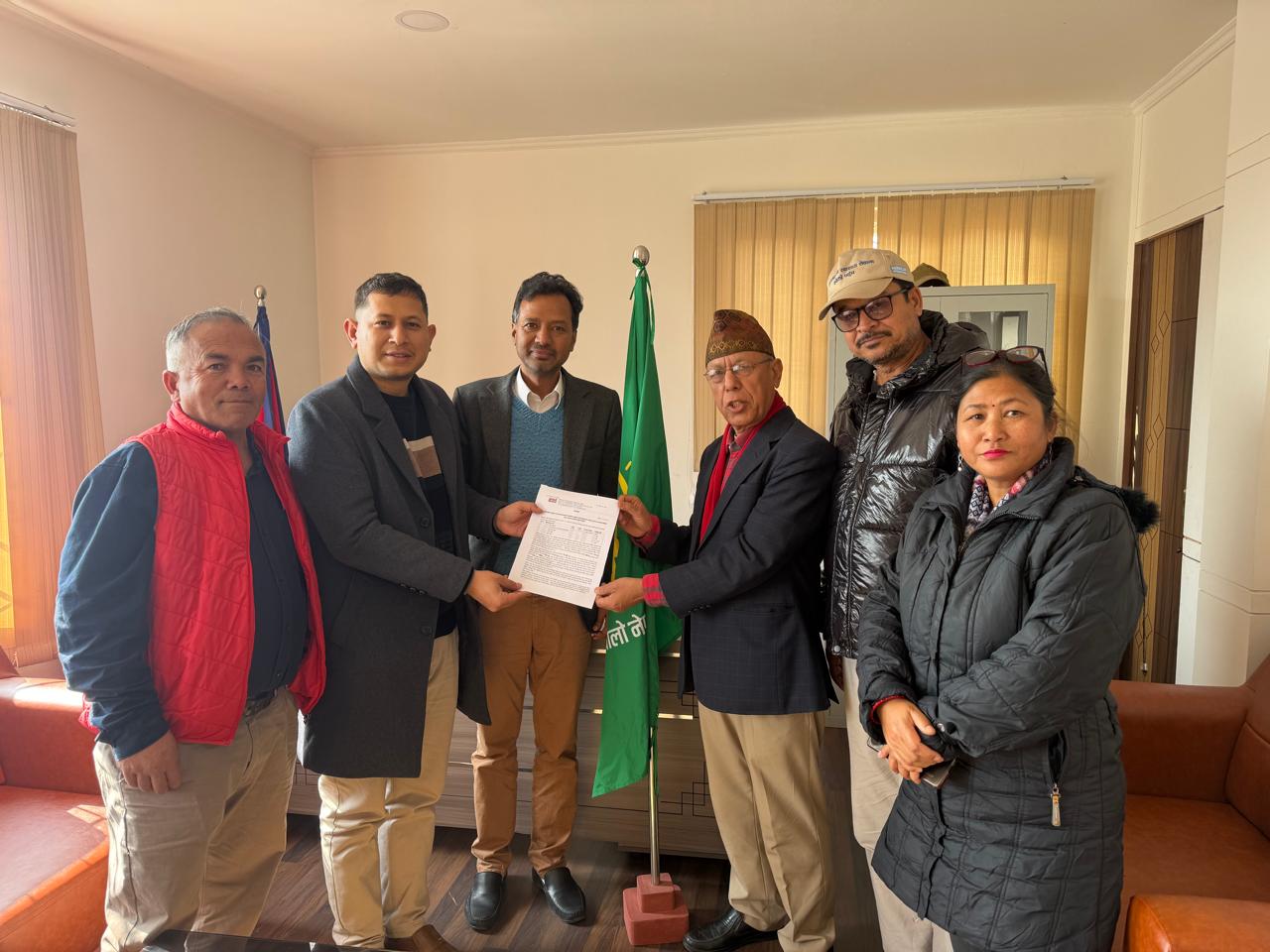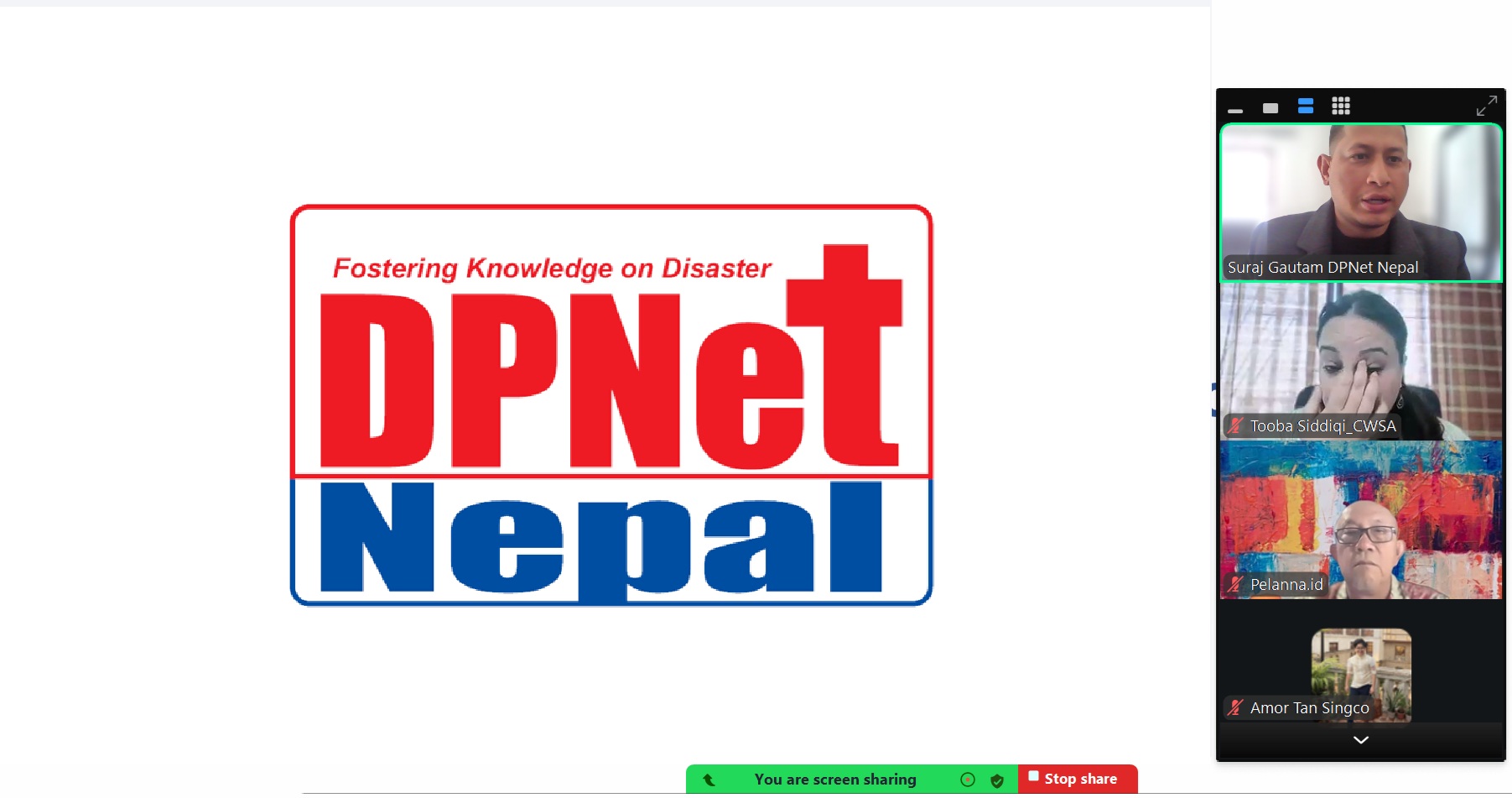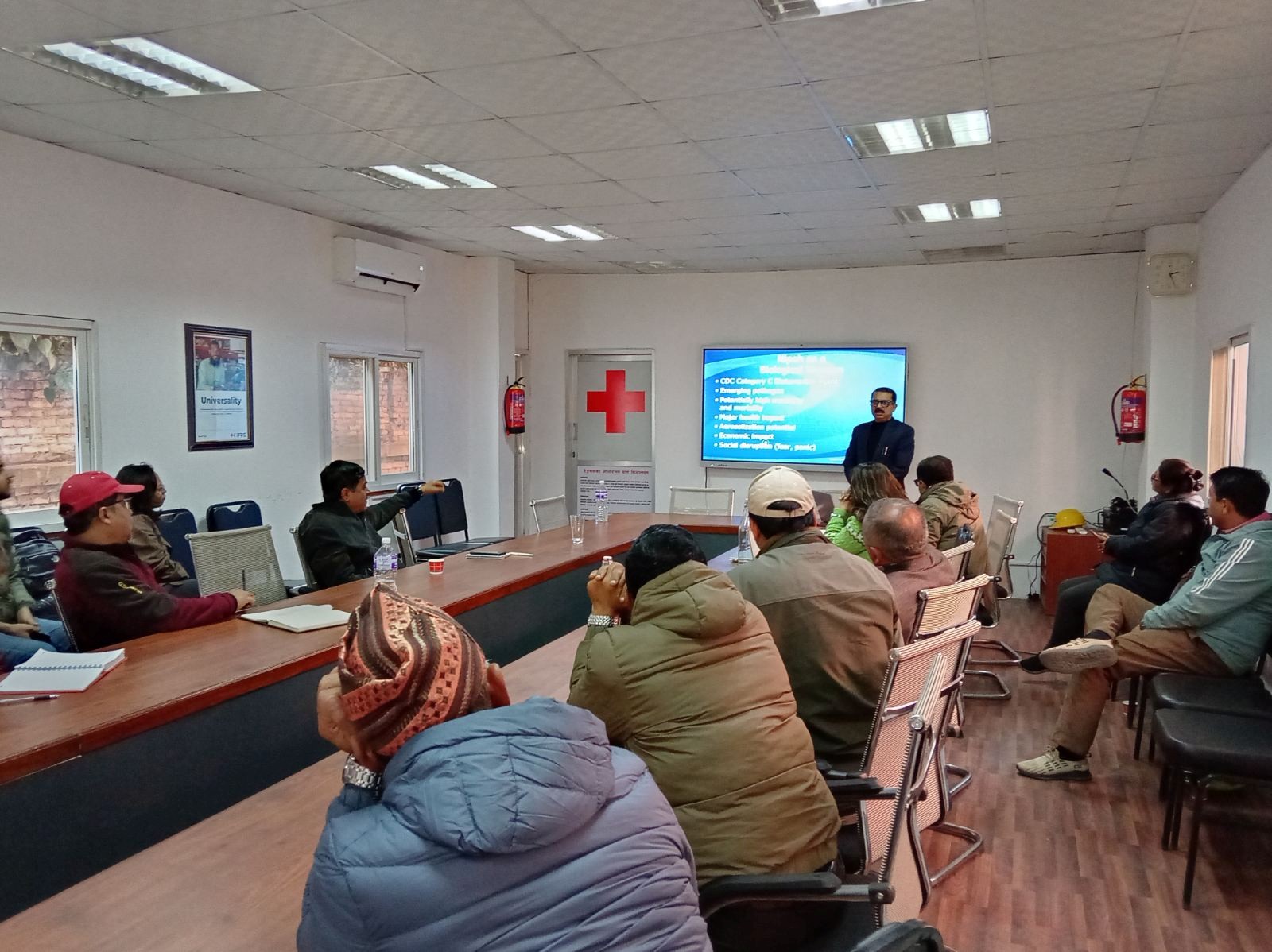Provincial Level Program at Sudurpaschim Province

On September 25, 2023, DPNet Nepal organized a program Provincial level program which was presided over by Mr. Sher Bahadur Basnet, DPNet Board, and the Chair of DPNet Provincial Committee, Sudurpaschim Province. Dr. Raju Thapa, the Acting Chair at DPNet Nepal attended the event as a chief guest. The agenda for discussion comprised sharing the achievements and learning of Mercy Corps and NEEDS, a presentation of the efforts of FAYA Nepal in earthquake response. Further, the presentation regarding the roles of Civil Society and DPNet Nepal was done along with the restructuring of the DPNet Provincial Committee of Sudurpaschim Province.
Mr. Nabin Bhandari, Program Coordinator of NEEDS, presented the efforts, achievements, initiatives, and learning of NEEDS and Mercy Corps in the field of disaster management that are to be shared at the DPNet Nepal’s province-level discussion. Mr. Bhandari's presentation shed light on the Zurich Flood Resilience Alliance (ZFRA) and its commitment to enhancing community resilience to flood risk through the Flood Resilience Measurement for Communities (FRMC) approach. The FRMC approach is research-based, focusing exclusively on studying the 5 Cs, 4 Rs, and 44 sources of resilience among community members. The overarching vision of the alliance is to ensure that floods have no negative impact on people and businesses, allowing them to thrive without hindrance. The goal is to increase social, political, and financial investment in community-based flood resilience building through collaborative efforts across public, private, and third-sector partnerships. The specified objectives include increasing funding for flood resilience, strengthening policies at various levels, and improving flood resilience practices.
The presentation also outlined specific interventions aimed at achieving these objectives. These interventions include the formation and strengthening of Community Disaster Management Committees (CDMCs), training task forces within CDMCs, providing livelihood support, linking CDMCs with Local Disaster Management Committees (LDMCs), and conducting advocacy training. Additionally, the alliance plans to assist local governments in policy formulation within the Disaster Risk Reduction (DRR) sector, enhance the budget allocation for DRR activities and undertake physical interventions such as bioengineering along rivers, road strengthening, safe house construction, and the establishment of Local Emergency Operation Centers (LEOCs). Looking ahead, the way forward involves collaborative efforts and working together towards the shared goal of building flood resilience. The presentation emphasizes the importance of advocacy at local, provincial, and federal levels for Disaster Risk Management (DRM), budget tracking at the municipal level, and the formation of loose forums such as the Doda Watershed Forum dedicated to DRM. The comprehensive approach outlined by Mr. Bhandari underscores the multifaceted nature of flood resilience and the need for concerted efforts across various sectors and stakeholders to achieve lasting impact.
Dr. Raju Thapa, Acting Chair of DPNet, began his presentation with an overview of DPNet Nepal’s history, which was established in 1996 A.D. He described DPNet as an umbrella organization comprising members from I/NGOs, and UN agencies, all working in the field of DRR. DPNet also serves as the secretariat office for the National Platform for DRR. As a networking organization, DPNet organizes various International, National, and Regional Conferences in the field of DRR.
Dr. Thapa, in his presentation, highlighted DPNet’s operational focus on policy advocacy, knowledge management, capacity building, and coordination. He discussed DPNet's publications and presented a graphical representation of disaster incidents from 2070 to 2079 B.S. He outlined major disasters in 2079 B.S. and listed key policy provisions for disaster management, including constitutional and legislative documents. Dr. Thapa emphasized defining provincial roles, collaborative training, government-private sector cooperation, and the historical context of NPDRR formation.
Dr. Thapa focused on defining provincial roles based on the type of disaster, collaborative training between security forces and citizens, cooperation between the government and private sectors in data management and resource utilization, and the mobilization of local resources and knowledge. He presented on the role of DPNet and civil society in the humanitarian sector. He emphasized the need to mobilize the NGOs for enhanced DRR practice and advocated for the need for the establishment of a Provincial Platform for Disaster Risk Reduction (PPDRR) in the Sudurpaschim Province.
The provincial committee formed on the 23rd of September 2019 by DPNet in Sudurpashchim underwent restructuring during the meeting. Through this restructuring, in each district represented by non-governmental organizations actively working in the disaster-prone region of Sudurpashchim, a committee of 21 member organizations was established. In this structure, one organization and its representative were selected for the position of Chairperson, while the remaining organizations continued as members. The selected organizations in the committee were requested by the Secretariat to submit necessary documents for official representation, and the committee decided to request an official list of representatives from the selected organizations for representation in the committee. The members of the restructured committee are;
Mr. Sher Bahadur Basnet, FAYA Nepal as the chair, and YAC Nepal, NEEDS Nepal, CSSD, NNSWA, NRCS Kailali, FAST Nepal, Prayas Nepal, DWRF Nepal, CCS, SEEWAC Nepal, MAN Nepal, CDRS Nepal, SADA, Peace Win Nepal, MPDS, EDC Nepal, Fulbari Elderly Committee, and SSD as the committee members.
Mr. Sachidananda Joshi, Capacity Enhancement Coordinator of FAYA Nepal, presented the organization's efforts and achievements in enhancing capacity for immediate response during disasters.
According to the regulations laid out in the constitution or as specified in the circulars issued by the secretariat, decisions were made regarding the roles and responsibilities of the various positions within the above-mentioned organizations at the meeting. The decision was made to establish FAYA Nepal as the secretariat of the DPNet Sudurpashchim Province Committee.
The meeting extended heartfelt thanks to Dr. Thapa, Acting Chair of DPNet who graciously accepted the role of Guest and provided valuable suggestions and guidance for the reorganization of the DPNet Sudurpashchim Province Committee from the Secretariat.
Mr. Sher Bahadur Basnet, Program Chair expressed his vote of thanks to all the presenters, and distinguished guests and concluded the program.











